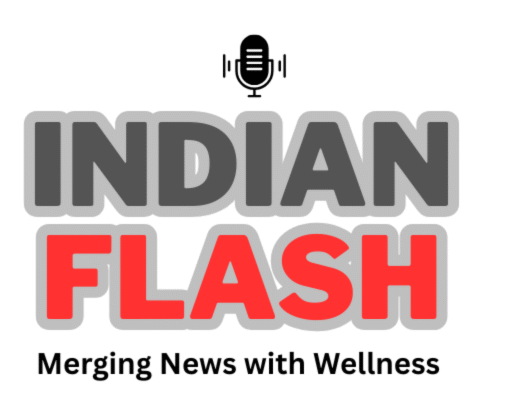Fertility challenges are often viewed as a woman’s issue, but that’s only part of the story. Male infertility contributes to nearly 40–50% of all infertility cases.
Among the many factors, diet plays a crucial role in sperm health, hormone balance, and conception success. Let’s explore which foods could quietly be harming your chances of fatherhood—and why you should avoid them.
🧨 1. Processed Meats: Tasty but Terrible for Sperm
Processed meats like bacon, hot dogs, and sausages are high in trans fats, nitrates, and preservatives.
🧪 Why It Matters:
These additives reduce sperm count and motility, making it harder for sperm to reach and fertilize the egg.
📚 Research Insight:
Studies show men who eat more processed meats have lower sperm quality than those who eat lean proteins.
✅ Healthier Swap:
Choose grilled chicken, fish, eggs, or lentils to fuel fertility with cleaner proteins.
🧀 2. High-Fat Dairy: Hormonal Disruptors in Disguise
Whole milk, full-fat cheese, and cream may contain hormone residues and saturated fats that can lower testosterone.
🧬 Why It Matters:
Testosterone is essential for sperm production. Disrupting it may reduce sperm count and function.
🥛 Better Alternatives:
Opt for low-fat dairy or plant-based milk like oat, almond, or cashew for hormone-friendly nutrition.
🐟 3. High-Mercury Fish: A Threat to Sperm DNA
While fish is heart-healthy, certain types contain dangerously high levels of mercury—a toxic metal linked to infertility.
⚠️ Avoid These Fish:
- Swordfish
- Shark
- King mackerel
- Bigeye tuna
💥 Impact:
Mercury damages sperm DNA and motility and accumulates in the body over time.
🐠 Safer Picks:
Choose salmon, sardines, and tilapia—rich in omega-3s and low in mercury.
🍺 4. Excessive Alcohol: A Quiet Fertility Killer
Heavy alcohol consumption lowers testosterone, reduces sperm production, and alters sperm morphology.
📊 Scientific Findings:
Men drinking over 2 drinks per day may experience reduced sperm volume and increased estrogen.
🚫 Tip:
Limit alcohol or avoid it altogether during your fertility journey to improve hormonal balance.
🌱 5. Soy Products: Plant-Based but Problematic in Excess
Soy contains isoflavones, which mimic estrogen and can throw off male hormones if consumed in large amounts.
🔍 The Concern:
High soy intake may lower sperm count and affect testosterone levels over time.
🍽️ Balanced Approach:
A little tofu or soy milk is fine—just avoid soy-heavy protein shakes or excessive soy snacks.
⚡ 6. Caffeine and Energy Drinks: Hidden DNA Saboteurs
Over 200 mg of caffeine per day (about two cups of coffee) may impair sperm quality and function.
💣 Why Energy Drinks Are Worse:
They mix caffeine with sugar, taurine, and synthetic stimulants—all of which may cause sperm DNA fragmentation.
✅ Safer Picks:
Switch to green tea, herbal infusions, or decaf options for alertness without reproductive risks.
🥤 7. Sugary Drinks and Artificial Sweeteners: Sweet but Harmful
Sugary beverages spike insulin, increase fat storage, and cause oxidative stress—three major threats to sperm health.
📉 What Studies Show:
Men who regularly drink sugary sodas have lower sperm count and poor sperm movement.
🚫 Avoid:
Soft drinks, sports drinks, and artificially sweetened juices with aspartame or sucralose.
💧 What to Drink Instead:
Try filtered water, coconut water, or fruit-infused water to stay hydrated without harming sperm.
🧠 Q&A: Everything Men Should Know About Fertility and Diet
❓ Can diet really improve fertility?
✅ Yes. While diet alone may not cure infertility, it significantly affects sperm health, hormonal balance, and conception success.
❓ How soon will dietary changes affect sperm?
✅ Sperm regenerates every 64–72 days, so expect noticeable improvement in about 2 to 3 months with consistent changes.
❓ Should I completely avoid caffeine?
✅ No need to cut it out entirely. Just stay under 200 mg per day, and avoid sugary energy drinks.
❓ Are fertility supplements worth trying?
✅ Some supplements—like CoQ10, zinc, vitamin D, and omega-3s—can improve sperm count and motility. Always consult your doctor first.
📌 FAQ: Foods & Fertility at a Glance
🔹 What’s the worst food for male fertility?
Processed meats, due to high trans fats and hormone-disrupting additives.
🔹 Can eating fish hurt my fertility?
Yes, if it’s high in mercury. Stick to safer options like salmon and sardines.
🔹 Is a plant-based diet better for sperm health?
Only if it’s well-balanced. Over-reliance on soy or nutrient-deficient choices may backfire.
🔹 Does obesity affect fertility?
Yes. Excess weight reduces testosterone and impairs sperm quality.
🔹 Is sugar worse than fat for fertility?
Both are harmful. Sugar causes oxidative stress, while unhealthy fats disrupt hormonal balance.
🟩 Bonus: Fertility-Boosting Habits for Men
In addition to avoiding harmful foods, follow these habits to support reproductive health:
- 🍳 Eat nutrient-rich foods: Zinc, folate, selenium, and omega-3s are key.
- 🏋️ Exercise moderately: Improves hormone balance and weight management.
- 🚭 Quit smoking: Tobacco damages sperm DNA and testosterone levels.
- 😌 Manage stress: High cortisol suppresses testosterone.
- 🛌 Get quality sleep: Sleep regulates libido and reproductive hormones.
🧬 Final Thoughts: Your Fertility Starts With Your Fork
Fertility isn’t just about age or genetics—it’s about daily choices. By cutting out harmful foods and embracing healthier options, you can improve sperm health, hormonal balance, and fertility potential.
👶 Whether you’re trying to conceive now or planning for the future, small changes in diet can create a big impact.
📞 Pro Tip: Speak with a fertility dietitian or a reproductive health expert to personalize your nutrition plan.

